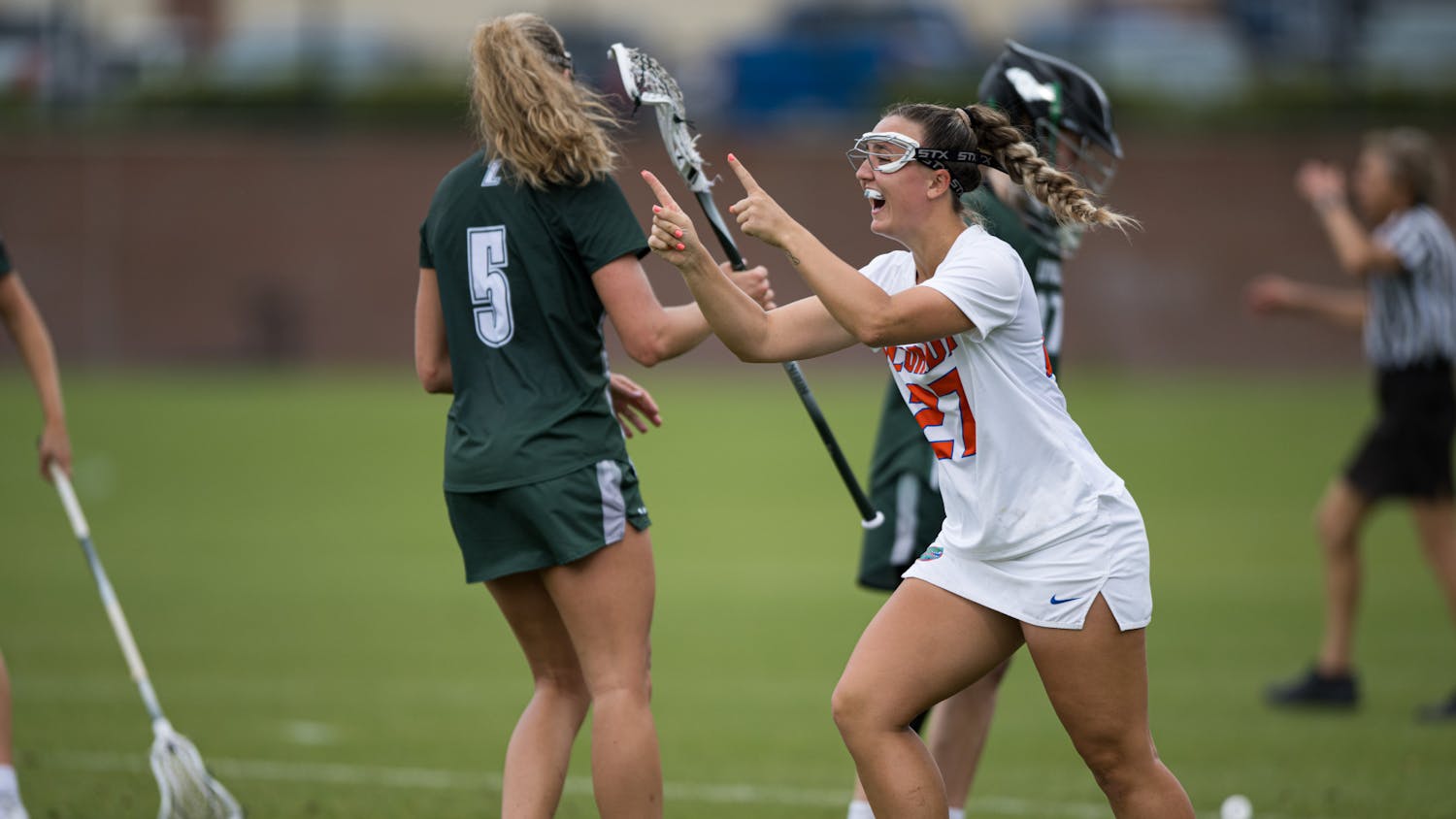It was an early morning in San Francisco when a man raped Matthew Bratko.
Nearly two years later, on Tuesday night in Gainesville, Bratko stood and watched as some of his friends depicted a post-party sexual assault in “Ashley’s Consent,” a four-night play held in the Newins-Ziegler Hall breezeway.
The play was sponsored by the Dean of Student’s Office, UF’s Center for Arts and Medicine, the Office of Victim services and Sexual Trauma/Interpersonal Violence Education.
Bratko said sexual assault continues to plague the country, but as more survivors speak out, others will hopefully learn from their stories.
“It happens way more often than people like to think it does or will admit to themselves that it does,” he said.
• • •
“Let’s not pretend it doesn’t happen right here at the University of Florida,” said Michael Martinez-Hamilton, an adjunct lecturer in the UF School of Theatre and Dance and the writer of “Ashley’s Consent.”
Tuesday night during a small get together, Ashley — played by Marissa Secades, a 19-year-old UF theatre and English sophomore — was drunk when her estranged boyfriend began to make advances toward her.
He kissed her and later put his hands down her pants when she was nearly unconscious.
The next morning, Ashley’s clothes were on but her shorts were unbuttoned. Her attacker had texted her, hoping she had a great night.
From there, the victim-blaming began, first from her best friend and then her mother.
“So this was my fault?” she tells her friend the next day. “He physically violated me.”
In writing “Ashley’s Consent,” Martinez-Hamilton said he wanted to highlight something that makes him uncomfortable and that makes most people uncomfortable.
He said he wished to shed light on the grey areas within sexual assault situations, mainly bystander intervention and victim blaming.
“That was my goal: coloring in those gray areas, raising those issues that make us uncomfortable,” he said.
• • •
By the end of the play, which forced a standing audience to follow the actors as they changed location, Ashley visits the Dean of Students Office to come forward about what happened to her.
But as Bratko watched on, he felt part of the story hadn’t been told.
“I did take issue with the fact that they leave out, as so many rape narratives do, the way that society institutionally enables men and makes them feel entitled to female bodies,” he said, “which is just a huge problem nationwide, across the world really.”
• • •
From a young age, Bratko said, men are instilled with the idea they have domain over women and their bodies, something perpetuated by popular culture and the media but ignored almost everywhere else, including UF.
Of all the programs offered by the Dean of Students Office teaching men not to rape, none address the underlying cultural basis, he said.
He said he can feel the culture changing with regards to survivors speaking out about their experiences and society in general increasing its awareness about sexual assaults.
“More people are talking about it,” he said. “More people are willing to come forward.”
@martindvassolo
mvassolo@alligator.org





